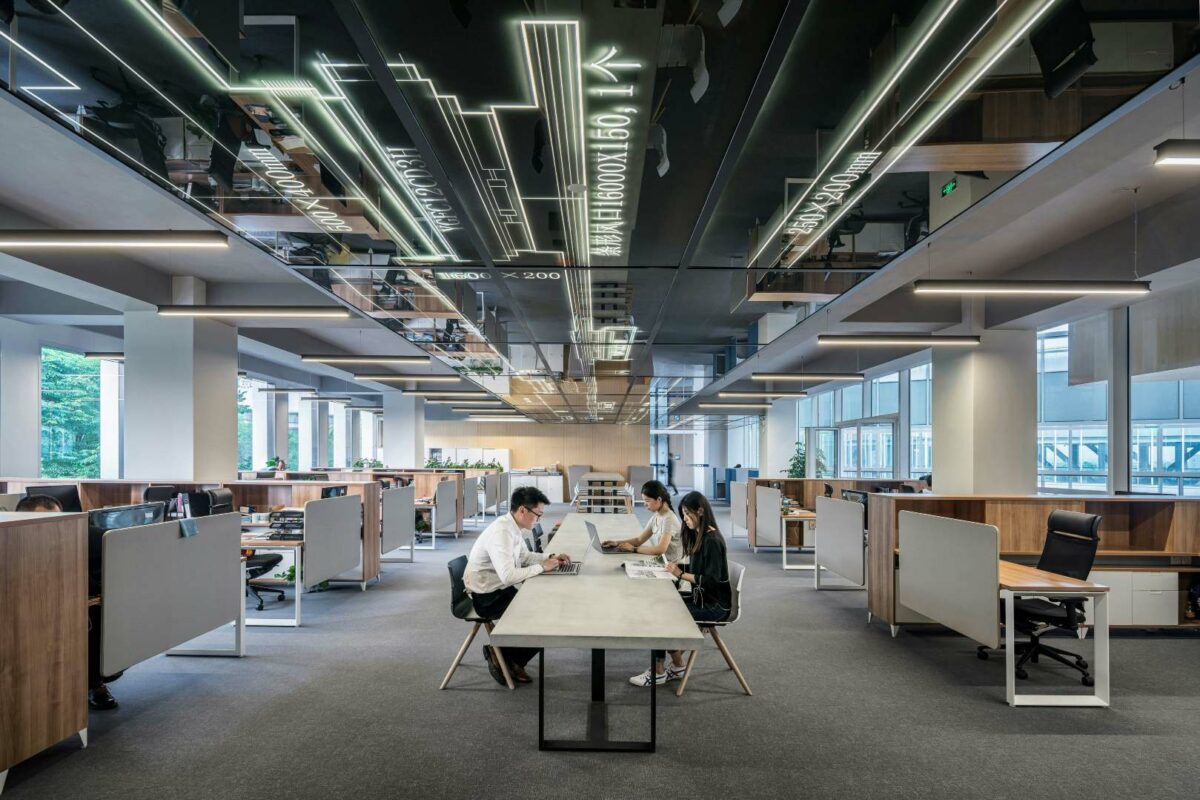As lockdown continues, remote working remains the norm for millions of employees across the country. But according to research carried out by London based architecture practice, Assael Architecture, almost two-thirds of people working from home during the Covid-19 lockdown believed that staying indoors for long periods of time had a negative impact on their mental health.
The survey, launched online in April, asked people how the design of their homes – ranging from houses and apartments to other typologies such as student housing and bungalows – was impacting their wellbeing during lockdown, as 97 percent of them tried to carry out their day jobs.
The findings revealed that just a quarter (24 percent) were working in a dedicated home office, while a further quarter said their workspaces were ‘not appropriate’. The Office of National Statistics (ONS) in 2019 found that fewer than 30 percent of employees had previously worked from home, despite some employers introducing more agile working pre-Coronavirus.
This left 23 percent of people working from their kitchens, 20 percent from their living rooms and 22 percent from their bedrooms. Other people reported working from their shed, a converted dressing room and even on the landing. A lack of space was cited as the most common complaint in the study, with noise and lack of natural light also ranking as problematic.
Of course, our work environment has a huge impact on our wellbeing, and Assael’s study reveals that remote workers prize daylight and natural views amongst those features that make them feel good. Indoor plants also had a notably positive impact, as did good ventilation, temperature control and comfortable furniture.
Work in Mind columnist Ben Channon, who is head of wellbeing at Assael Architecture, says, “We know that the quality of the built environment affects our mental health every day, even before Covid-19 limited us to our homes. While businesses and office design are constantly adapting to cater for the needs of users and employees, homes must also have this flexibility.
“This lockdown was unthinkable just six months ago, but it has made us rethink our old way of living and shown us that too few homes are designed with the flexibility to allow us to work from home properly. We should ensure that our homes are equipped for the future, and as architects and designers, part of our role is helping building users to be happier and healthier wherever they live and work. Employers must join us in this challenge by supporting their staff to make the best use of their home environments to support agile working for the longer term.”
However, if you’re currently struggling to work from home, don’t despair.
“No matter how challenging your workspace is, there are some steps that everyone can take to improve their mental health, regardless of how much space they have,” says Ben. “Changes like these have been shown to have a positive impact on our mood and, while they seem small, they can make all the difference. Employers must join us in this challenge by helping us to make the best use of our home environments, and to support agile working for the longer term.”
Here are Ben’s tips for improving your home working environment and boosting your mood in the process…
- Move your desk closer to the window to maximise the availability of natural light. This is key to our happiness, boosting vitamin D and serotonin (the “happy” hormone) levels.
- Avoid working in your bedroom in the daytime. If you’re working in a space usually reserved for leisure, like the sitting room, pack away your things when you finish. It’ll help you separate work and leisure time, ensuring you get a break.
- Invest in an ergonomically-designed, comfortable desk chair to ensure that you’re working in a way that supports your physical health.
- Buy some potted plants – even a little bit of greenery can drastically improve our mental wellbeing.
- Stay active to boost your mood. If you can’t get outside to exercise, use things within the house to work out – whether it’s climbing flights of stairs or even just doing simple step ups onto a kitchen chair.
For more information please visit Assael Architecture and for more content on remote working, click here.
Ben Channon is Head of Wellbeing at Assael Architecture. For more of Ben’s content for Work in Mind, click here.

Content Team
Work in Mind is a content platform designed to give a voice to thinkers, businesses, journalists and regulatory bodies in the field of healthy buildings.




